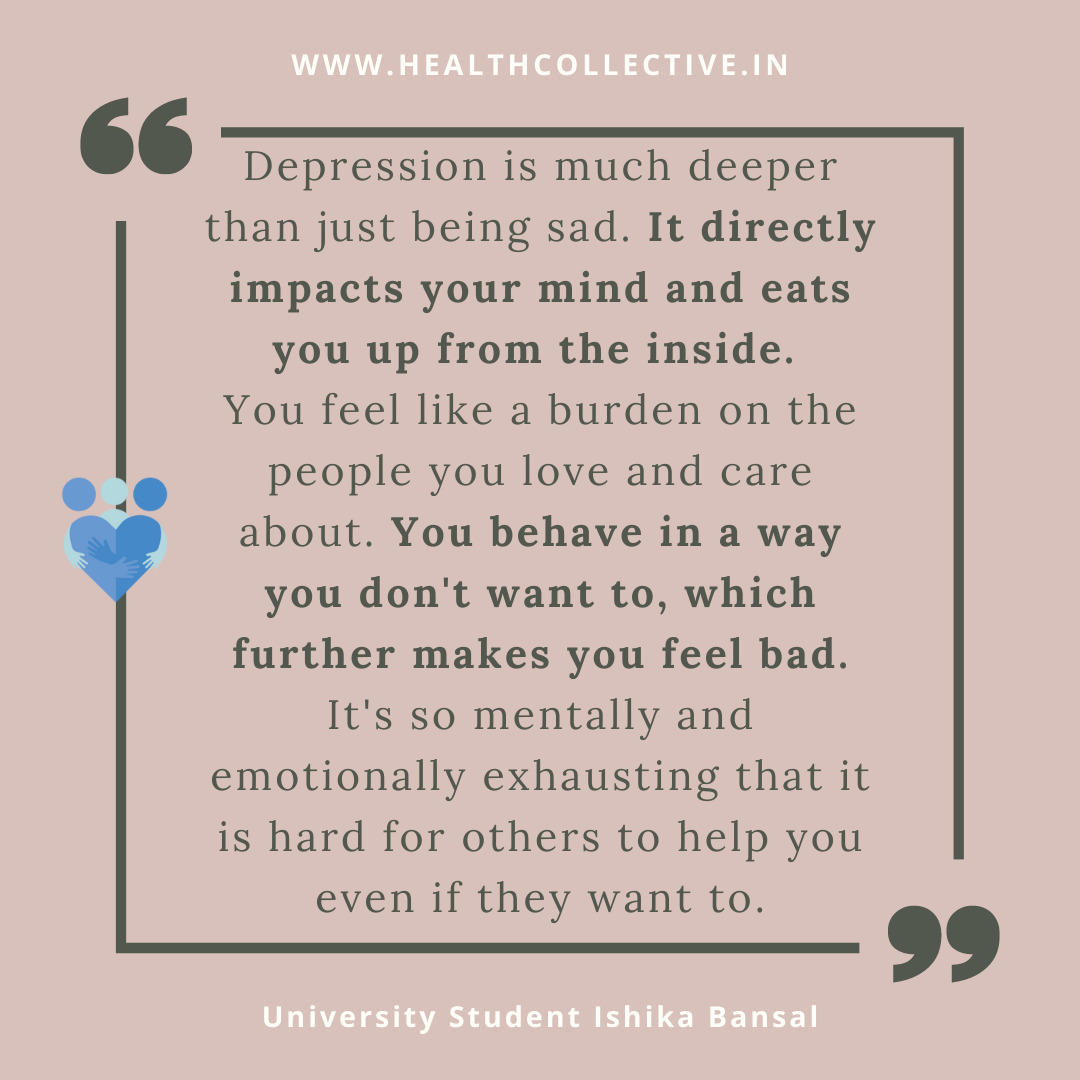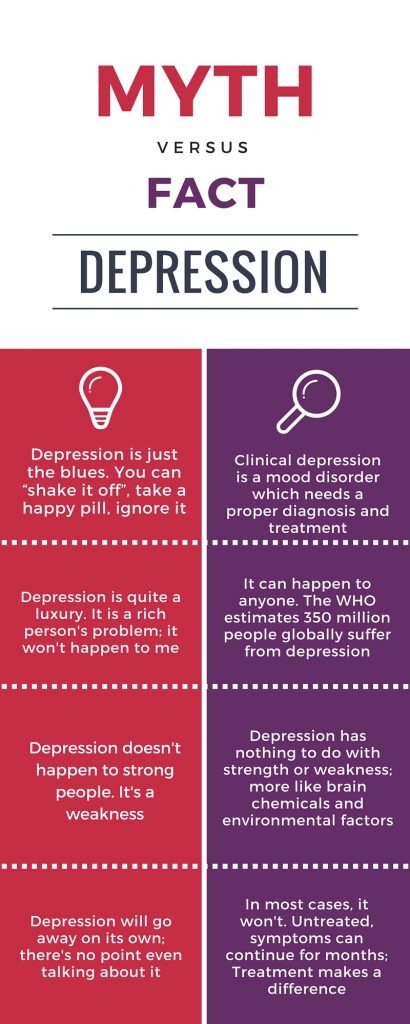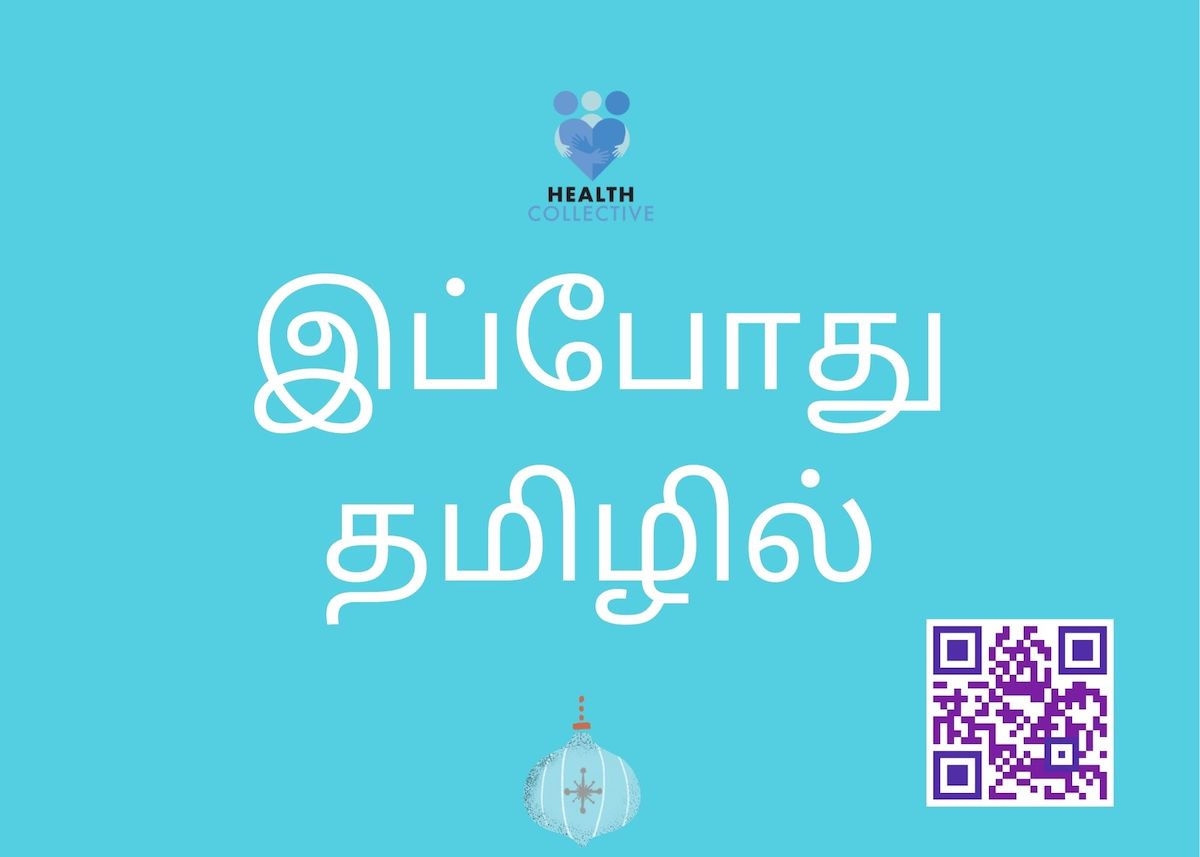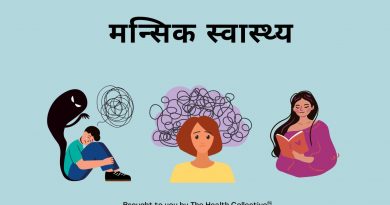How to Help Someone with Depression (Even When They Push You Away)
Have you ever tried helping someone with depression, only to encounter reluctance? It’s painful to see someone struggle, but is there anything you can do if they won’t accept help?
By Dhwani Majithia
It is completely understandable to feel helpless when you are unsure about how to help someone you know (or suspect) is depressed. This article is intended as a guide on how to help someone with depression without being too pushy or forceful.
What is Depression?
Depression is a serious and common mental health condition that impacts one’s emotions, thoughts, actions, and view of the world negatively.
Common Symptoms of Depression:
- Feeling sad, hopeless, or irritable, most of the time
- Losing interest in things, one used to enjoy
- Changes in weight or appetite (they may gain or lose significant weight unintentionally or eat much more or less than usual)
- Getting either little or too much sleep nearly every day
- Either restless and fidgety, or moving, and reacting very slowly
- Lack of energy or constant tiredness
- Feeling worthless or guilty
- Struggling to make decisions or focus
- Thinking about death or suicide, suicidal ideation or suicide attempts*
*Please know that you are not alone; if you are feeling distressed, please reach out to someone. We have helplines listed here
One rule of thumb: The symptoms tend to persist for at least two weeks and significantly disturb daily life, making it difficult to work, socialise, or manage responsibilities.
ALSO READ: REAL STORIES OF DEALING WITH DEPRESSION
Why Do People with Depression Sometimes Refuse Help?
- Stigma– In India, still a lot of people see mental illness like depression in a negative way which leads to discrimination and social isolation for individuals with mental health problems. Due to this stigma, people often hesitate to seek help because they fear being judged and rejected. (Aside: Also, Bollywood movies have often shown mental illness in the wrong way, creating misunderstandings, stigma, and mistrust in psychiatry. They sometimes connect mental disorders to supernatural events or magical cures instead of medical treatment.)
- Lack of awareness– Many people still aren’t fully aware of the condition, and may believe depression can be resolved through family advice or discipline without realising that professional help is sometimes needed.
- Fear of burdening others– Some people may not want to trouble others by asking for help, or feel guilty about asking for help. Also in India, people fear burdening their families due to societal expectations. In Indian cultures, where family honour is often prioritised over individual needs, this concern can be even more debilitating.
- Hopelessness– Depression can itself make a person feel like there is no point in asking for help, as “nothing will help”. (Editor’s Note: This is not true, but feels true)
- Seen as a weakness– In our society, mental health problems like depression are often seen as a sign of weakness; we tend emphasise the idea of ‘being strong’ and maintaining an image of strength, which discourages individuals from seeking help.

How to Talk to Someone with Depression?
- Educate yourself on the common signs and symptoms of depression. (Editor’s note: Please avoid trying to diagnose people using pop quizzes or Insta posts)
- Create a safe and quiet environment for them to open up.
- Listen to their thoughts and feelings without any judgment and avoid asking them any ‘why’ related questions, eg avoid q’s like: “Why do you feel like this?” or “Why are your thoughts like this?”
- Validate their emotions like “I can see how difficult or painful this is for you.” or “I hear you, it is not easy.”
- Ask open-ended questions like “How are you feeling for the past few days?” , “Would you like to share your current thoughts?”
- Express your love and concern for them and let them know that you care for them and they are not alone. Sometimes, when it is difficult to express verbally, you can write them a soulful letter, which expresses your love, concern, and support for them.
- Since even small activities can be difficult for people with depression, acknowledge and praise them when they achieve something no matter how small.
- You can also support them with small activities or chores, such as helping them cook a meal or buying groceries for them.
- Respect their need for space if they are not ready to talk; you can give them that space or simply sit with them without talking or asking them anything.

What to Do When Someone With Depression Rejects Your Help?
- Don’t take it personally. Resistance isn’t about you. It’s often an indication of sadness. Remember that the rejection does not represent your efforts or concern.
- Respect boundaries. Trying to force anyone to ‘get help’ can cause them to withdraw even further. You can say something like “I understand and respect that you don’t want to talk right now/ are not ready to talk right now but I am always available if you change your mind.”
- Accept that you cannot “fix” them. It is difficult to watch someone you know struggle, but healing is ultimately their journey. You are there to support, not solve problems.
- Look after your feelings. Rejection can feel terrible, but don’t let that stop you from showing up in small ways.
How to Encourage Them To Get Professional Help?
It can be difficult to convince a loved one to seek professional help as it is a significant step, especially in cultures like India where this is not considered the first-line treatment for depression. People often try various other methods before considering therapy.
- Address any misconceptions like “Therapy is only for those with severe mental illness.” Help them understand that therapy is for anyone who wants to function better or improve their overall well-being.
- You can also share a few examples of people who have benefited from therapy to give them the much-needed ‘hope’ that they too can feel better over time.
- You can encourage them to start with just one session, and if they feel comfortable, then they can continue with further sessions.
- You can help book the first session or even volunteer to go with them as an act of solidarity/ allyship.
- And at last, no matter how they respond, continue to show empathy and support.
When to Seek Immediate Help?
- If they are experiencing thoughts of suicide, self-harm, or death, whether directly or indirectly*. (Please note there are helplines available)
- Worsening of existing symptoms or if you notice new symptoms.
- If they withdraw entirely from daily activities.
- If they exhibit reckless or self-destructive behavior.
- It may be necessary to inform someone close to them such as a trusted family member or friend if they express severe suicidal thoughts, have a plan, or seem to be in immediate danger to ensure their safety.
Some Helpline Numbers In India:
- iCall: (Monday- Saturday, 10:00 am – 8:00 pm), +919152987821
- Jeevan Aastha: 18002333330
- Kiran Government Mental Health Helpline: 18005990019
- NIMHANS Helpline: 08046110007
- Aasra- Suicide Prevention Helpline: +919820466726
If you or someone you know is struggling with depression, don’t hesitate to reach out to a mental health professional. Support is always available.
If this article helped you, please do share it with someone who might need it. A tiny action from you could have a significant impact.
Disclaimer: Views expressed are personal and do not necessarily reflect the views of The Health Collective.
About the author: Dhwani Majithia is a psychologist passionate about mental health awareness and self-growth. She creates insightful content to make psychology accessible to all | Instagram: @psychologybydhwani




